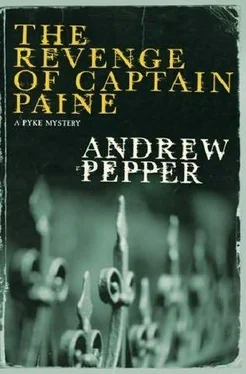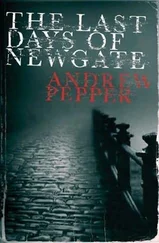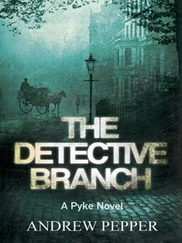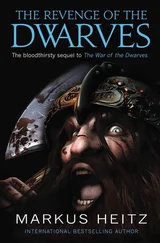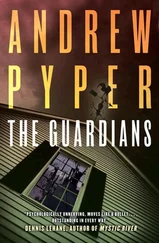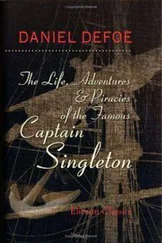Andrew Pepper - The Revenge of Captain Paine
Здесь есть возможность читать онлайн «Andrew Pepper - The Revenge of Captain Paine» весь текст электронной книги совершенно бесплатно (целиком полную версию без сокращений). В некоторых случаях можно слушать аудио, скачать через торрент в формате fb2 и присутствует краткое содержание. Жанр: Исторический детектив, на английском языке. Описание произведения, (предисловие) а так же отзывы посетителей доступны на портале библиотеки ЛибКат.
- Название:The Revenge of Captain Paine
- Автор:
- Жанр:
- Год:неизвестен
- ISBN:нет данных
- Рейтинг книги:5 / 5. Голосов: 1
-
Избранное:Добавить в избранное
- Отзывы:
-
Ваша оценка:
- 100
- 1
- 2
- 3
- 4
- 5
The Revenge of Captain Paine: краткое содержание, описание и аннотация
Предлагаем к чтению аннотацию, описание, краткое содержание или предисловие (зависит от того, что написал сам автор книги «The Revenge of Captain Paine»). Если вы не нашли необходимую информацию о книге — напишите в комментариях, мы постараемся отыскать её.
The Revenge of Captain Paine — читать онлайн бесплатно полную книгу (весь текст) целиком
Ниже представлен текст книги, разбитый по страницам. Система сохранения места последней прочитанной страницы, позволяет с удобством читать онлайн бесплатно книгу «The Revenge of Captain Paine», без необходимости каждый раз заново искать на чём Вы остановились. Поставьте закладку, и сможете в любой момент перейти на страницу, на которой закончили чтение.
Интервал:
Закладка:
On the same afternoon he had learnt about Nash’s death and the stolen documents, Pyke gathered together the watchmen who had been guarding the bank the previous night. But to his consternation and irritation, it transpired that no one had seen or heard a thing. Pyke believed them, too. The watchmen he’d employed didn’t have the wit or the courage to lie to him.
‘I want to know who’s stolen from me and I want you to help me,’ he’d told them at the meeting. ‘And if I find out that one of you was involved or knows something and is covering up for someone else, I’ll make you wish that you’d never taken a job at this bank.’
If Nash’s murder was linked to the corpses discovered in Huntingdon it suggested that the suppression of the navvies and the rape of the old woman were in turn connected to the internal politics of his bank. But in spite of his investigative prowess Pyke couldn’t determine what the connection might be. In his eyes, the only way Nash’s murder and the riots in Huntingdon were linked was by the slavering interest shown in both events by journalists and news editors. It was perhaps inevitable that a gruesome murder would find favour with hacks who could exploit its sensationalist appeal to promote their names and sell newspapers, but Pyke was surprised by the extent of the coverage on the riots and the obvious bias shown towards the townsmen. Even the apparently liberal Chronicle and The Times, though regretting the still-unconfirmed loss of life suffered by the navvies, placed all blame for the disturbances on the navvies and the radicals who’d infiltrated their ranks and incited them to violence.
To counter this view, the unstamped newspapers like Godfrey’s the Scourge had started to circulate an alternative account of the events in Huntingdon among the city’s poorest neighbourhoods, producing a groundswell of sympathy for the navvies and anger at the perceived vigilante behaviour of the special constables who’d been appointed without due process and who’d taken the law into their own hands. Many of the trade unions had already convened impromptu meetings to plan their response, something that in turn had prompted the government to fill up the barracks on Birdcage Walk with detachments of cavalry from Hounslow and Croydon and regiments of infantry from Woolwich and Chatham. There were also two thousand uniformed police officers making their presence felt on the city’s streets.
Unlike Nash’s murder, Morris’s apparent suicide merited only a very brief mention in The Times ’ City Intelligence column and was deemed to be significant only insofar as it affected the already flagging fortunes of the Grand Northern Railway. The Chronicle ran a slightly longer account of his ‘unfortunate demise’ and speculated that the difficulties facing the railway and boardroom tussles regarding the future direction of the venture had driven him to ‘tragically’ take his own life. Unsurprisingly, since no corpses had yet been unearthed, no mention had been made of the two Spitalfields weavers, Freddie Sutton and his wife, whose deaths Pyke had stumbled across. Nor, in spite of his personal intervention, had anyone at Scotland Yard treated his claims seriously; Pyke had been shooed from the assistant commissioner’s office and warned not to waste police time with his ‘groundless scaremongering’.
As Gore had intimated, Bellows was the kind of man whose apparent commitment to public service concealed a burning private ambition to succeed the Right Honourable Charles Lord Tenterden on the bench of the Criminal Court at the Old Bailey. As such, his liberal contributions to the royal commission on capital crimes and his proximity to the Home Office were not principled stances but rather appropriate ways of currying favour with those who might be able to influence the appointment of the next Lord Chief Justice. As the chief magistrate at Bow Street he had sought to foster a reputation as a thoughtful, fair-minded figure, liberal in his dealings with the poor but hard on all forms of political radicalism. In public, he liked to believe that his efforts were part of a larger project to reform the entire judicial system according to Benthamite principles; in private he was a cruel, vindictive man who beat his servants and used his office to punish those who had personally crossed him.
Pyke had heard a rumour that Bellows had once set up a man who had cuckolded him on a false theft charge and sentenced him to hang.
On the morning of the coroner’s inquest, Pyke met the chief magistrate outside the King’s Head tavern, the first time he had encountered the man since walking out of his courtroom with Godfrey on his arm. It was an awkward moment but Bellows made no mention of that incident and pushed past him without uttering a word, indicating to Pyke that he had no desire to discuss the fact that all the charges against Godfrey had now been dropped. His bristling, self-righteous air suggested that he hadn’t adjusted to his humiliation very well.
The stink from the filth-blackened north bank of the Thames at low tide had filled the upstairs room of the King’s Head. Filthy remains washed up from the tanneries and glue factories on the Surrey side of the river mixed with slaughterhouse offal and human excrement to produce dark pools of slime whose eye-watering smell easily penetrated the closed windows and overpowered the rosemary and lavender that had been sprinkled over the floor.
It was the only room that the coroner, Daniel Day, had been able to requisition at such short notice that was large enough to accommodate the twelve jurors and the various witnesses he intended to call upon. Still, his timid apologies regarding the foulness of the air and the grubbiness of their surroundings did little to appease Bellows, who bewailed having to run the gauntlet of the rambunctious mob gathered downstairs in the taproom, where, Pyke knew, ratting contests sometimes took place.
It was highly unusual that such an important legal figure should attend or present evidence at a coroner’s inquest, even more so because the chief magistrate had no connection with the deceased. This didn’t stop him complaining bitterly about the vile stink and the drunken behaviour he had witnessed downstairs. Briefly Pyke thought about explaining to him that public houses always did brisk business on the day of inquests but decided that he would be wasting his time. How could Bellows ever be made to see that the working men and women weren’t drinking to celebrate someone else’s death but rather to affirm the fact they were still alive? He would never imagine that survival was a sufficient cause for revelry.
Including the twelve men of the jury, there were twenty or so people squeezed around the two adjoining tables. Bellows sat at one end and a space had been reserved for Day at the other end. A few others rested on spittoons and window ledges and perched on top of the old piano. But pride of place had been reserved for Morris’s corpse, laid out in the middle of the two tables and covered with a dirty sheet. Pyke could just about make out Morris’s features under the sheet and felt a mixture of sadness and anguish wash over him.
‘Thankee kindly for helping a crippled man.’ Jake Bolter hobbled into the room with the grace of a man wearing leg-irons and collapsed into the Windsor chair reserved for the coroner. Behind him, his mastiff stood panting, a wet string of saliva hanging from its powerful jaws.
When Bolter sat down, he let rip with a fart that seemed to go on for minutes and which produced a stink much worse than the odours emanating from the river. ‘That’s what they call letting a brewer’s fart, grains and all.’ Bolter grinned as he looked around at the others. ‘Must be the meat pie I ate playing with my digestion.’
Those who were sitting nearest to him edged away, perhaps because of the smell but also on account of his mastiff, which had taken its place at Bolter’s feet and growled at anyone who looked at it.
Читать дальшеИнтервал:
Закладка:
Похожие книги на «The Revenge of Captain Paine»
Представляем Вашему вниманию похожие книги на «The Revenge of Captain Paine» списком для выбора. Мы отобрали схожую по названию и смыслу литературу в надежде предоставить читателям больше вариантов отыскать новые, интересные, ещё непрочитанные произведения.
Обсуждение, отзывы о книге «The Revenge of Captain Paine» и просто собственные мнения читателей. Оставьте ваши комментарии, напишите, что Вы думаете о произведении, его смысле или главных героях. Укажите что конкретно понравилось, а что нет, и почему Вы так считаете.
